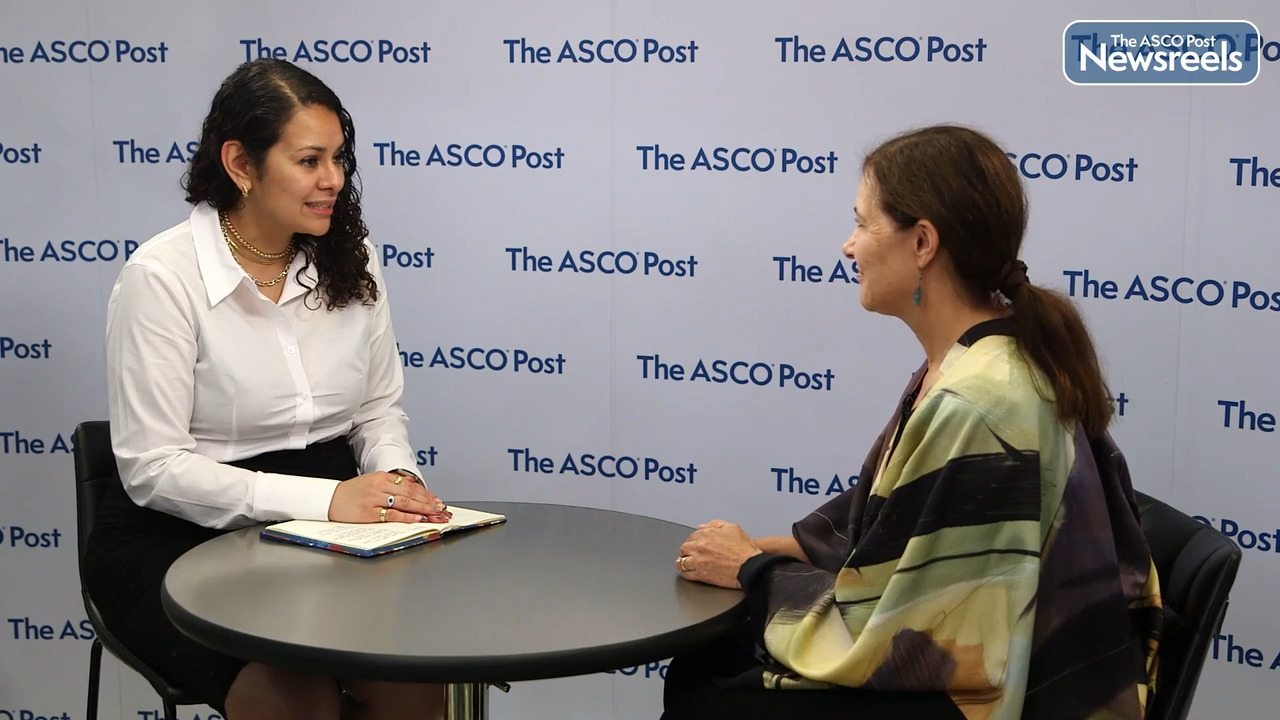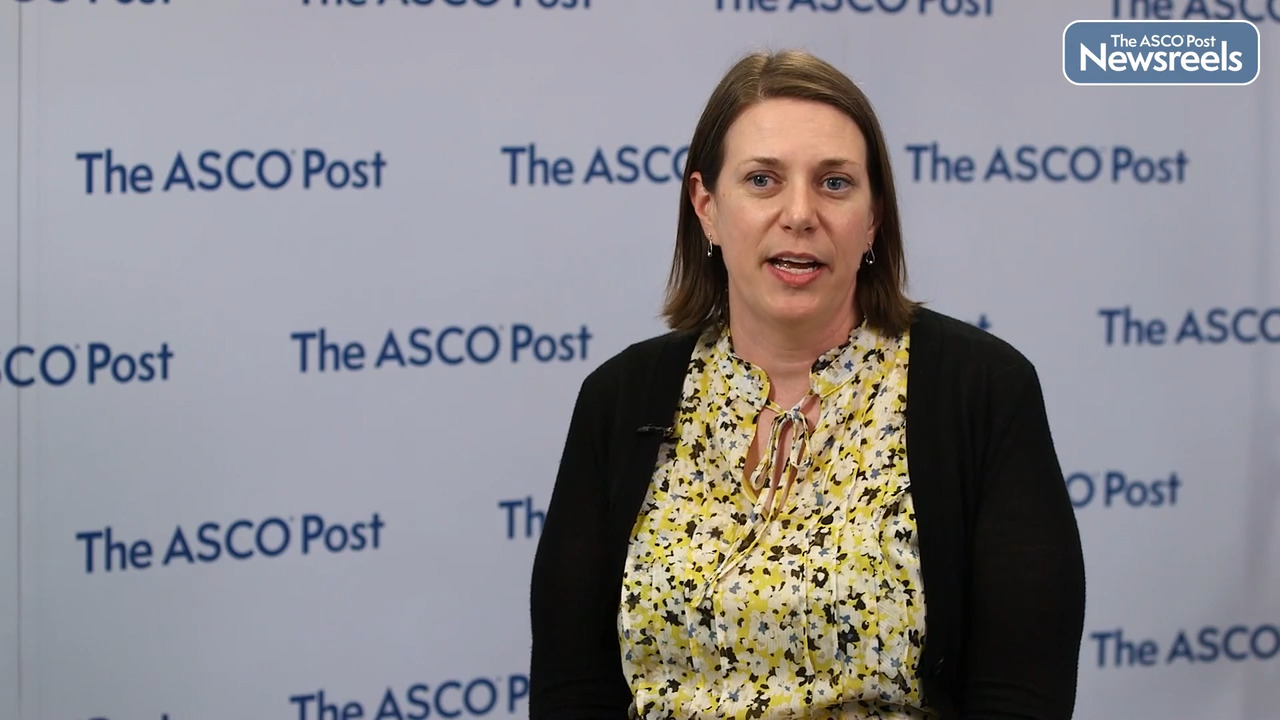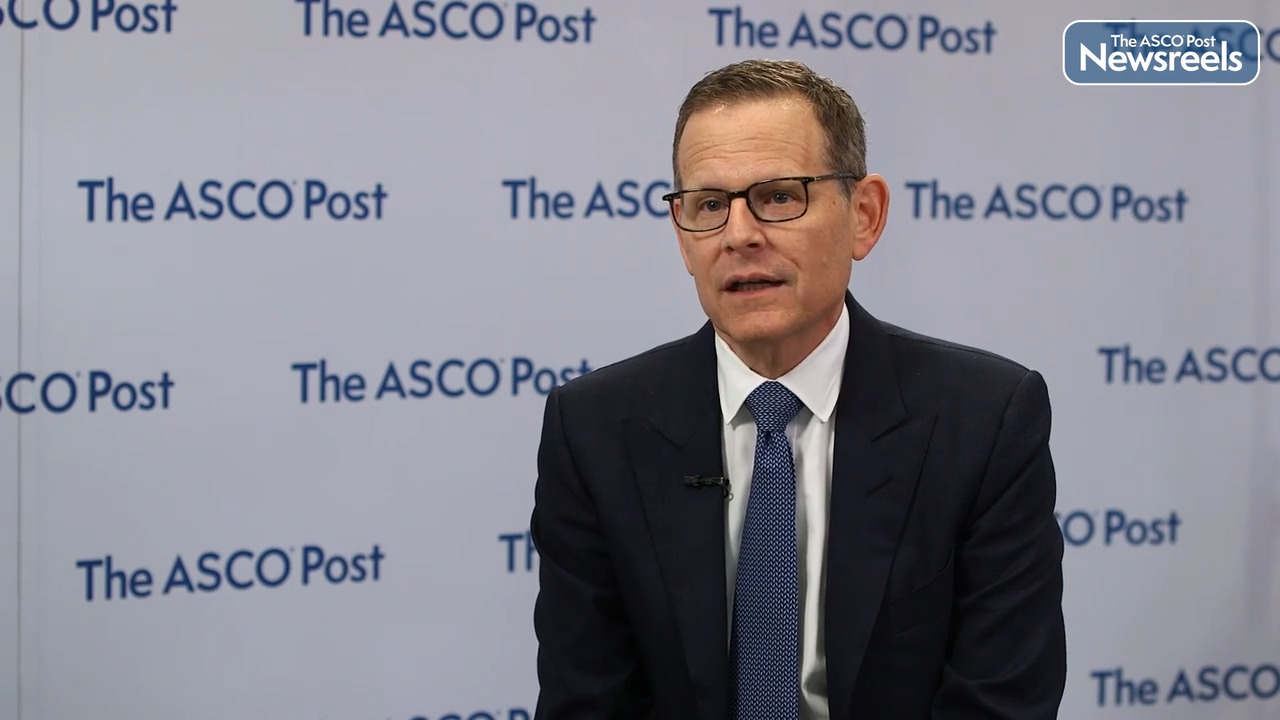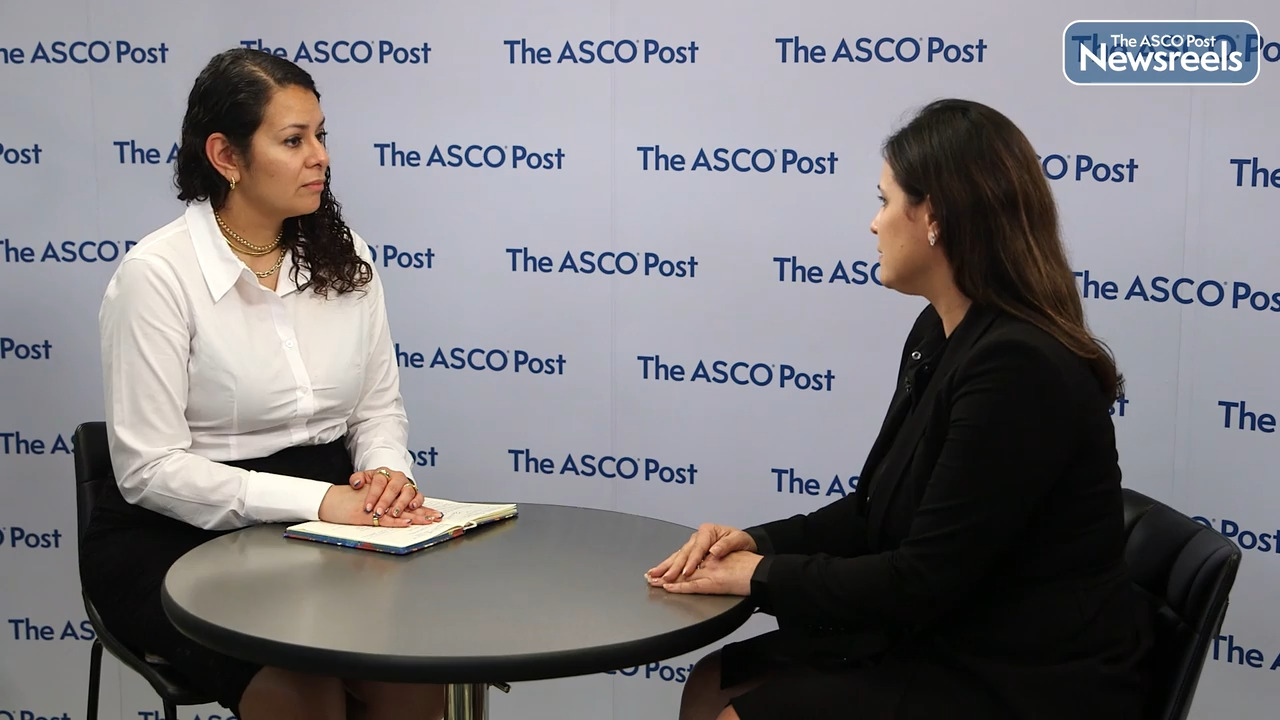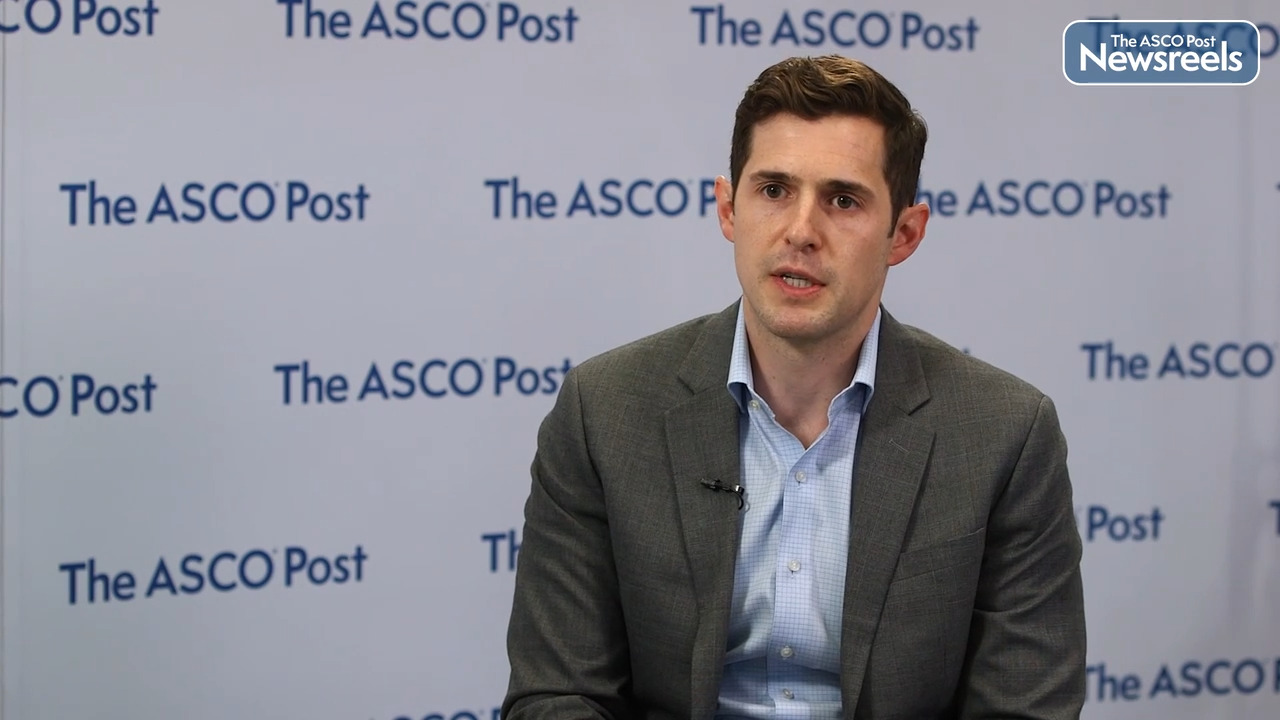Transcript
Disclaimer: This video transcript has not been proofread or edited and may contain errors.
Rami Manochakian:
The ADAURA Trial is a randomized, double-blind, phase three trial that enrolled hundreds of patients with early stage, non-small cell lung cancer with EGFR mutation. In particular, patient with stage 1B to 3A who underwent resection. The trial randomized the patient to either osimertinib, which is a third generation tyrosine kinase inhibitor, anti-EGFR, or placebo for three years. A few years ago, the primary endpoint of the trial was presented, which was the disease-free survival. And the study has shown significant improvement in disease-free survival, which led to the drug being approved and currently used in the United States and many other parts of the words. In this ASCO Annual Meeting, the study investigators presented the overall survival data at the plenary session. This study has shown exciting overall survival benefit for patient with stage 2 to 3A.
The five-year survival was 85% for the patient who received osimertinib versus 73% for patient who received placebo. The median survival was not met yet. For patient with stage 1B to 3A, the hazard ratio was also 0.49 with a median survival also not reached. And the five-year survival was 88% versus 78%. Why is this study important? This study has shown significant improvement in overall survival. This hazard ratio mean that there is a decrease by 51% chance of death. This overall survival data means that osimertinib increase the chance of a cure. This is exciting. This is so important for our patients. This concept of personalized medicine, targeted therapy for patient with early stage non-small cell lung cancer, who has this EGFR mutation, being on this drug, helping them live longer, helping them potentially being cured. I do want to acknowledge few points that has been brought up by many specialists and oncologists about this trial.
While we're very excited, beyond thrilled, about the overall survival benefit, we need to acknowledge that, just like any other cancer drug, there is some toxicity involved. While we can say that the toxicity profiles for this drug, in this trial, as many like to use the words, was acceptable or manageable. That may not be the case for every patient.
Some patient may not tolerate the drug very well, and we owe it to our patients to discuss what to expect as far as side effects. And while they're on this drug, manage these side effects and address them properly. The other point also I'd like to bring up, which was brought up by many, is that in the placebo arm, there are some patients when their disease recurred, did not get osimertinib for a lot of different reasons. While I don't think this would affect the impressive positive results of this study, but it's definitely something to keep reminding us about the importance of access. And osimertinib is a standard of care drug, whether in the stage four setting and now in the early stage after resection, and every patient anywhere and everywhere should have access to it.
Another important point we need to address is, do these patients need to be on osimertinib for three years? We don't know. Maybe some patient could benefit by being on it for a shorter period of time and some may need it for that long. I think we need study to look into that. And kudos to the investigators of this trial, They are looking as at tools such as free cDNA to see if some patients may benefit from being on it for longer or shorter period of time. And last but not least, I think we need to always remember that only patients who we know their cancer harbors EGFR mutation can get this drug, which remind us of the importance of testing every patient with early stage non-small cell lung cancer for EGFR mutation to know if they have it so they can get on this drug.
